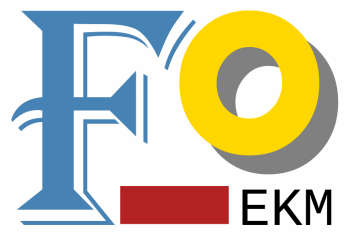
Humour has been studied at the Department of Folkloristics of ELM for decades; over the last few years, the share of humour research has grown even more. Humour plays an important role in online discourse, which is why the Studies of contemporary culture (incl. the media) working group of the Centre of Excellence in Estonian Studies (2015-2023) recently coordinated research on contemporary folklore. This included international projects with Poland, Hungary and Slovenia, that focused on humour in its performance context, for example by analysing the mechanisms of local and global cultural production. We found that global tendencies are always at the service of local interests and are adapted to the local contexts in a creative way (Laineste et al 2023a and 2023b; Laineste et al 2022 and others)
In recent projects, ELM's humour research group has focused on memes, analysing their diffusion, glocalisation mechanisms and humour techniques (Laineste & Voolaid 2016, Laineste & Voolaid 2020, Laineste & Fiadotava 2020, Laineste et al 2024, Laineste & Fiadotava 2024, etc.). In addition, we have studied jokes (ethnic humour - see Laineste 2008; religious humour - Laineste et al 2020, (family) relationships - Laineste 2012, Fiadotava 2020, etc.), as well as other forms of humour (stand-up - see Laineste 2012, cartoons and other visual humour - Laineste & Lääne 2015).
Due to a number of factors (including the amplified flow of information on social media), humour-induced scandals and sharply divisive conflicts are on the rise. We have explored their causes and origins, e.g. how online commentary discusses identity, traditions and beliefs, and against whom hostility is expressed (e.g. in the form of hate speech), especially concerning ethnic categories, but also other social groups (religious groups e.g. Laineste & Chlopicki 2024, immigrants e.g. Laineste 2020, or humour on the topic of the war in Ukraine e.g. Laineste et al 2024, etc.).
A number of finished and ongoing projects, including the CELSA network project "Humour and conflict in the public sphere" (1.09.2022 - 1.09.2024), HUMLIT Marie Curie Staff Exchange grant "Humour literacy" with 23 partners (2025-2028), are conducted by the members of the research group. Already completed projects include the Jagiellonian University-funded project "Study of art in Covid-19 humour" (2022), 9-1/2016/1 Communication styles: development of a cross-cultural theoretical and methodological framework (TA project 2015-2017), ETF grant 8149 Cultural processes in a changing society: Tradition and Creativity in Post-Socialist Societies (2009-2012), ETF grant no. 6759 Folkloric Anecdote Today: post-socialism - internet - cognition (2005 - 2009), ETF grant no. 4935 Contemporary Estonian Folk Humour (2004 - 2005).
In addition to writing scientific articles, the humour researcher working group at the Estonian Literary Museum also participates in popularising science. They have written popular articles in both Estonian and international media (e.g. Laineste 2017 in Müürileht, Fiadotava & Jürgens 2022 in Conversation) and appeared on radio and TV programmes.
Researchers: Liisi Laineste, Anastasiya Fiadotava, Sergey Troitskiy, Guillem Castanar.
